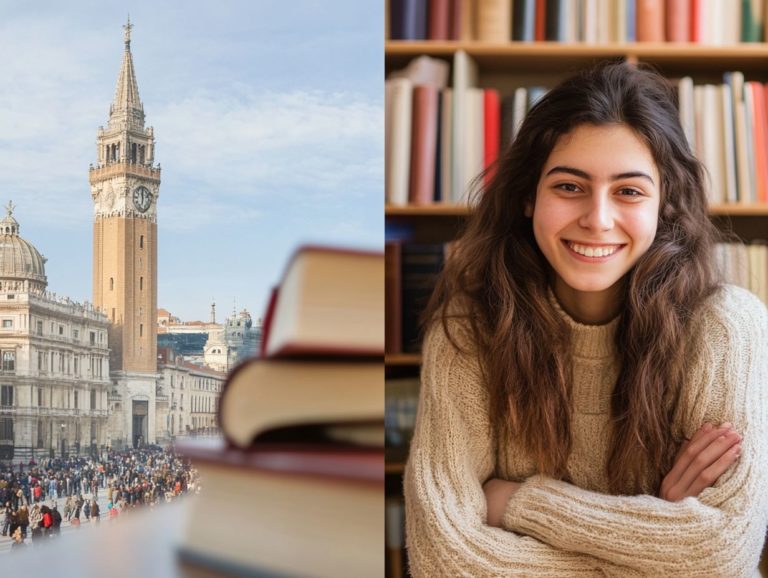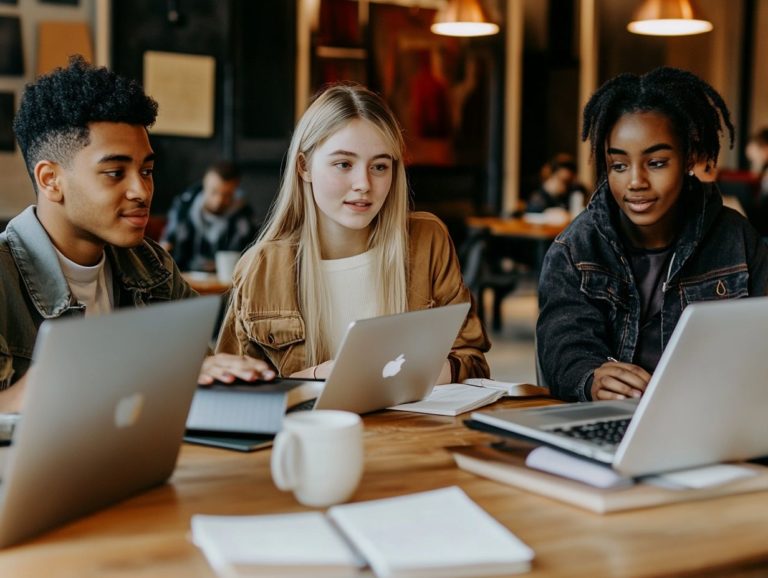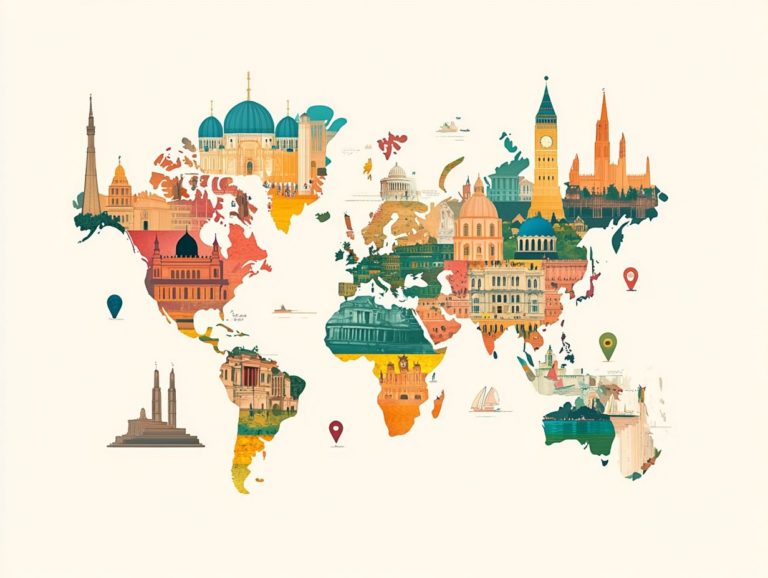How to Be an Effective Cultural Ambassador?
Cultural ambassadorship is crucial! It fosters understanding and appreciation among diverse communities. Let’s explore what it means to be a cultural ambassador and the exciting opportunities it brings.
This exploration delves into what it truly means to be a cultural ambassador. You ll uncover the personal and professional benefits that stem from this unique position, the key qualities that define an effective ambassador, and how you can prepare for this rewarding journey.
Practical tips for successful cultural exchanges will be discussed, along with the challenges you may face on this path. Dive in and discover how you can create a meaningful impact!
Contents
- Key Takeaways:
- What is Being a Cultural Ambassador?
- Benefits of Being a Cultural Ambassador
- Qualities of an Effective Cultural Ambassador
- Preparing to Represent Your Culture
- Tips for Successful Cultural Exchange
- Challenges and How to Overcome Them
- Frequently Asked Questions
- What does it mean to be a cultural ambassador?
- Why is it important to be an effective cultural ambassador?
- How can I become a cultural ambassador?
- What skills do I need to be an effective cultural ambassador?
- How can I handle cultural differences as a cultural ambassador?
- What are some common mistakes to avoid as a cultural ambassador?
Key Takeaways:
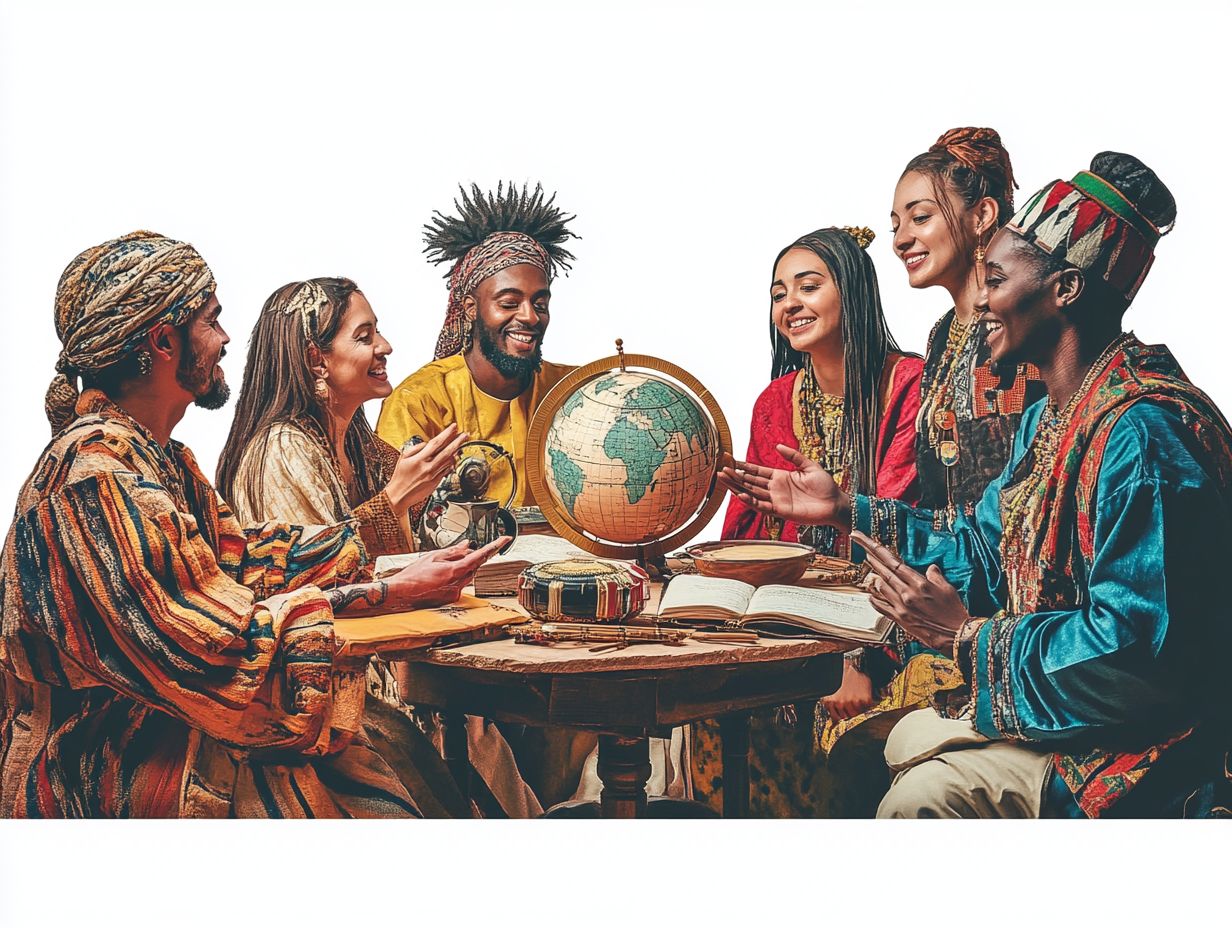
- Effective cultural ambassadorship requires understanding the role and responsibilities, and the ability to represent your culture with respect.
- Being a cultural ambassador offers personal and professional growth and fosters cultural understanding.
- Key traits include empathy, adaptability, and strong communication, along with thorough preparation.
What is Being a Cultural Ambassador?
Being a cultural ambassador is an essential role that involves representing and promoting the cultural identity of a specific community. It enhances dialogues surrounding cultural customs and fosters a deeper understanding of national heritage.
As a cultural ambassador, you become a bridge between various cultures. You engage in educational exchanges and positive cultural programs that showcase the rich diversity of people and their unique experiences.
In today s interconnected world, developing cultural competence the ability to understand and interact effectively with people from different cultures and a keen awareness of cultural nuances has never been more crucial.
Defining the Role and Responsibilities
The role of a cultural ambassador involves a range of responsibilities. This includes facilitating cultural exchanges and promoting educational initiatives that enhance understanding among diverse communities.
You actively engage in meaningful dialogue, encouraging conversations that celebrate differences while uncovering the shared values that unite us all. You connect disparate groups through events that showcase traditions, art, and history, while also addressing any misconceptions that may exist between cultures.
By organizing workshops, presentations, and community festivals, you inspire collaboration and mutual respect. Your ability to navigate complex cultural dynamics positions you as an essential advocate for inclusivity, ensuring that every voice is heard and valued in the ongoing narrative of cultural cohesiveness.
Benefits of Being a Cultural Ambassador
Becoming a cultural ambassador presents you with a wealth of benefits. It opens doors for personal growth, enhances your cultural competence, and allows you to make a meaningful impact on community networking through cultural representation and engagement.
Embracing this role enriches your experiences and fosters connections that can inspire and transform your community.
Personal and Professional Growth
The journey of being a cultural ambassador often leads to profound personal and professional growth as you navigate diverse cultural landscapes.
In this role, you can draw from your background, which often involves adapting to new environments and embracing a variety of perspectives. As you engage with different communities, you refine your communication skills and master essential marketing techniques that are crucial in today s interconnected world.
By leveraging the capabilities of storytelling and local insights, you cultivate meaningful relationships that can open doors to economic opportunities and collaborative projects. Ultimately, these experiences reshape both your personal identity and professional skill set, enabling you to promote cultural diversity and inclusion in innovative and impactful ways.
Join us in this rewarding journey, and make your mark as a cultural ambassador!
Qualities of an Effective Cultural Ambassador
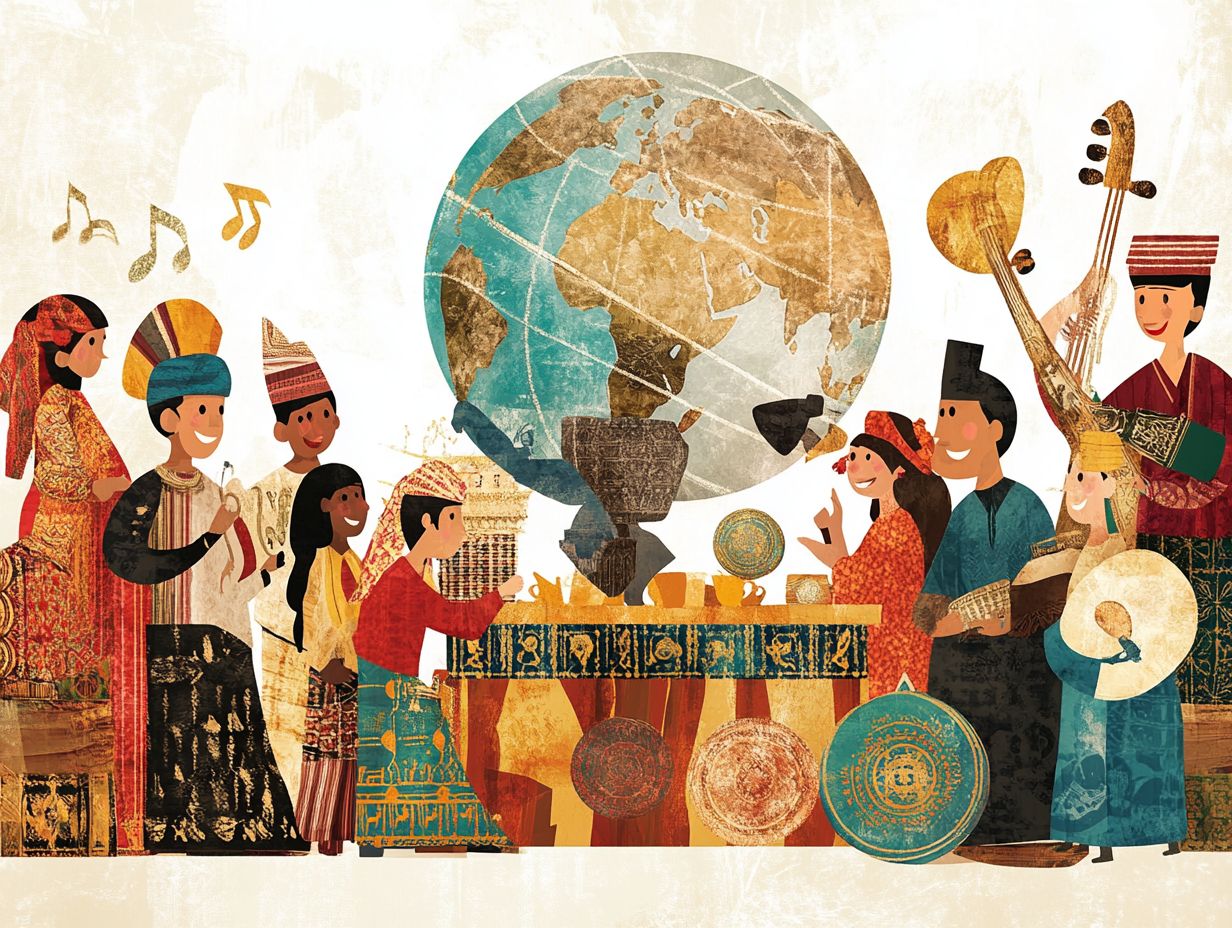
An effective cultural ambassador possesses essential traits that enable successful cultural exchange. These traits include understanding different cultures, empathy, and a steadfast commitment to learning about the nuances of diverse customs.
Embracing these qualities allows you to bridge cultural divides with grace and insight.
Key Traits and Skills
Key traits and skills essential for you as a cultural ambassador include strong communication abilities, flexibility, and openness to engaging with diverse perspectives.
These qualities enable you to effectively bridge gaps between cultures and foster understanding. Your capacity for active listening is crucial when navigating complex conversations that may arise in multicultural settings.
Flexibility allows you to embrace change and respond positively to unexpected challenges, enhancing the overall experience of cultural exchanges.
By nurturing empathy and a genuine willingness to learn, you can connect with individuals from various backgrounds, facilitating meaningful dialogue and promoting mutual respect.
Preparing to Represent Your Culture
To truly represent your culture as a cultural ambassador, engage in thorough research and develop a deep understanding of your cultural identity. It’s essential to create strategies that promote effective community building, ensuring your representation resonates meaningfully with others.
Research and Preparation
Effective research and preparation are crucial for you as a cultural ambassador. They enable you to develop a nuanced understanding of your cultural identity and the stereotypes that may surround it.
By immersing yourself in your own background, you can articulate your experiences clearly and counter any misconceptions that arise during conversations between people from different cultures.
This preparation helps you represent your culture authentically and equips you with tools to engage thoughtfully with others.
Through diligent research, you can uncover rich histories, traditions, and perspectives, fostering deeper connections and respect among diverse communities. Ultimately, your commitment to understanding enhances your effectiveness in addressing biases and encouraging meaningful exchanges that pave the way for greater intercultural harmony.
Tips for Successful Cultural Exchange
To facilitate successful cultural exchange, it’s important for you as a cultural ambassador to prioritize effective communication, flexibility, and a steadfast commitment to nurturing cultural awareness through open-minded discussions.
Embracing these principles will enable you to bridge gaps and foster meaningful connections across diverse cultures.
Communication and Flexibility
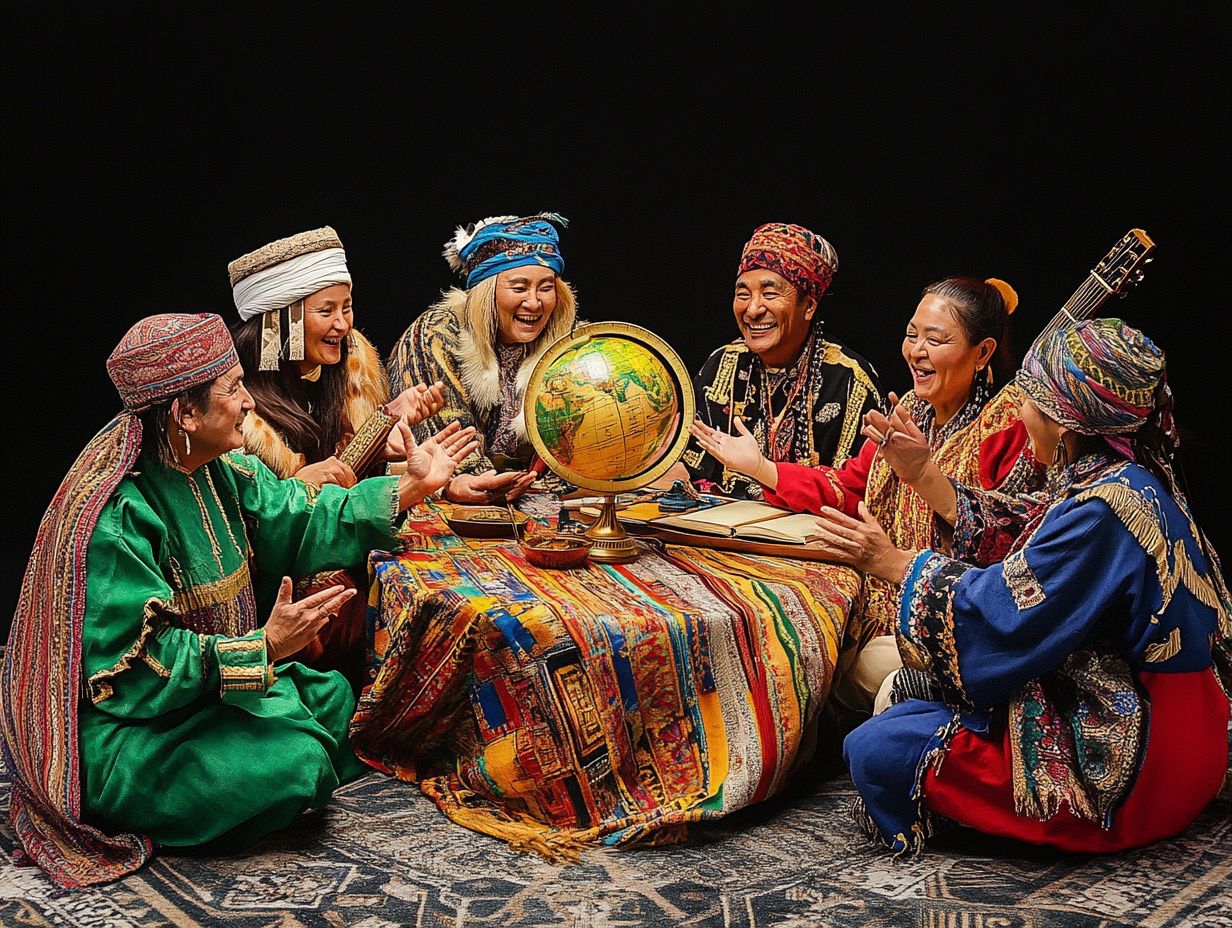
Strong communication and flexibility are essential for you as a cultural ambassador. They guide you through the intricate landscape of cultural exchange while fostering meaningful interpersonal connections.
These skills enable you to connect authentically with diverse communities, ensuring that the nuances and subtleties in different cultures are acknowledged and respected.
By articulating your ideas effectively and embracing flexibility in your approaches, you can bridge gaps in understanding and reduce misunderstandings.
This adaptability enhances your dialogues and allows you to tailor your strategies based on your audience and context, leading to richer exchanges. Such interactions cultivate deeper mutual respect and help uncover shared values that transcend cultural boundaries, paving the way for enduring partnerships and collaborations.
Challenges and How to Overcome Them
Cultural ambassadors often face challenges, including cultural barriers and perceptions influenced by radical right-wing populism. Developing effective strategies to navigate these obstacles is crucial for fostering positive stereotypes and promoting understanding across diverse communities.
Start your journey as a cultural ambassador today!
Understanding Cultural Differences
Cultural differences can be challenging. As a cultural ambassador, you need to connect with various customs and communities.
Explore different communication styles and traditions. This journey helps you appreciate each culture’s unique qualities and connect communities.
Cultivating inclusivity and empathy is vital. Your efforts promote dialogue and help others embrace cultural differences.
Frequently Asked Questions
What does it mean to be a cultural ambassador?
Being a cultural ambassador means representing your own culture and promoting cross-cultural understanding. It’s about sharing your culture and understanding others!
Why is it important to be an effective cultural ambassador?
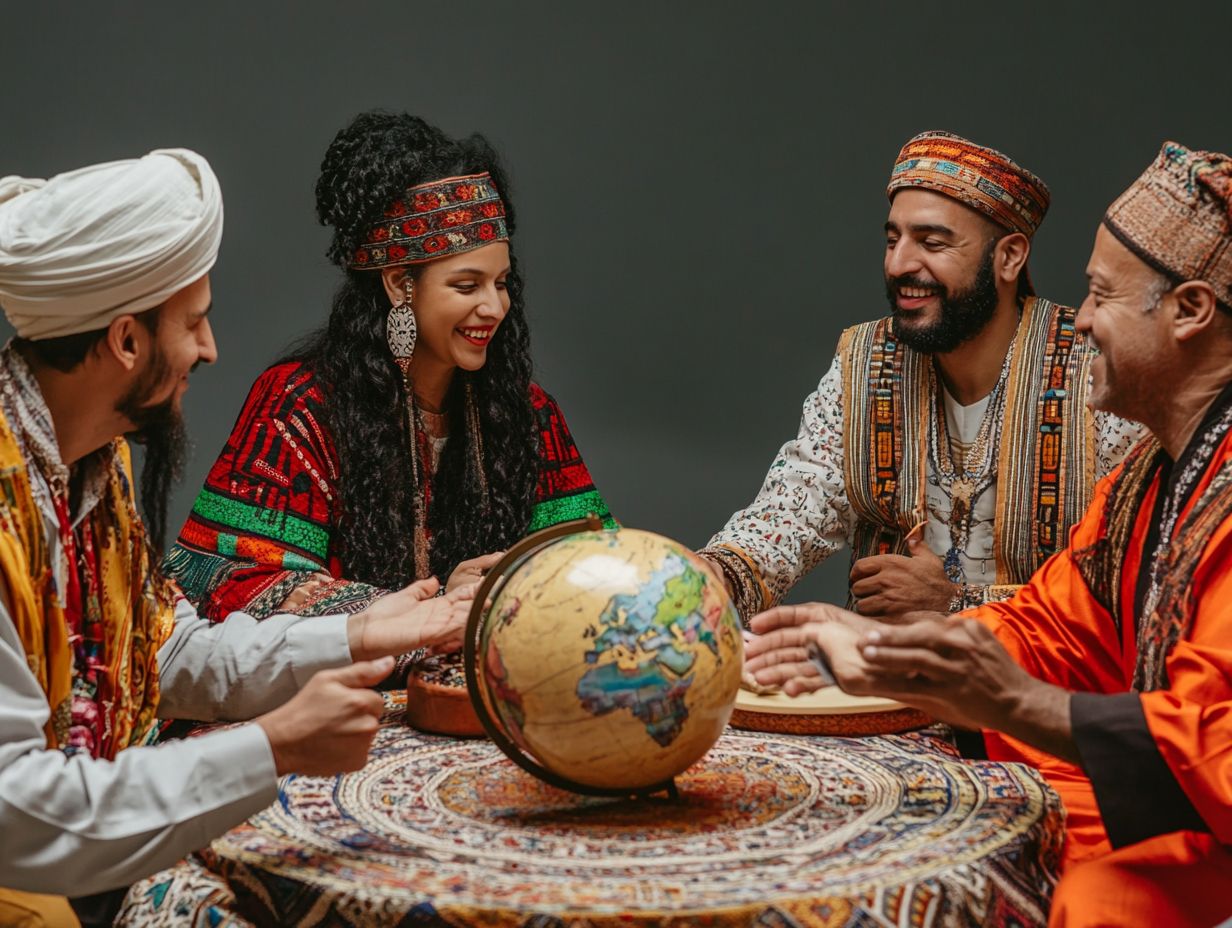
Effective cultural ambassadors build better relationships, fostering peace and understanding.
How can I become a cultural ambassador?
Start by learning about your culture and others. Join cultural exchange programs to dive deeper!
What skills do I need to be an effective cultural ambassador?
Key skills include communication, open-mindedness, and cultural awareness.
How can I handle cultural differences as a cultural ambassador?
Approach cultural differences respectfully and with curiosity. Ask questions and listen actively to understand others.
What are some common mistakes to avoid as a cultural ambassador?
Avoid stereotypes and assumptions. Always be mindful of your words and actions; they greatly impact interactions.


